Stepping Stones & One Angry Lady
 I’ve reached a milestone in my writing journey. My debut novel is hitting bookshelves as we speak, and it seems only natural to look back and ponder the stepping stones that led me here.
I’ve reached a milestone in my writing journey. My debut novel is hitting bookshelves as we speak, and it seems only natural to look back and ponder the stepping stones that led me here.
Lately I’ve been thinking about the angry Applebee’s lady.
It was my first week at a new job, and it happened to be someone’s birthday. To celebrate, the entire office went out to Applebee’s. I didn’t know a single soul, so I sat silent, observing, honing my people watching skills. It wasn’t long before one rather feisty individual demanded the table’s attention. Oh, she didn’t tap her water glass with a fork. She didn’t need to. Her voice carried throughout the entire room as she ranted and raged.
You see, her son’s teacher was reading Harry Potter to the class.
Now, I’m not here to make a stink. I know some folks have problems with the books, and I think you have every right and every responsibility to monitor your children’s reading and to encourage the healthy stuff. And certainly, to be concerned about age-appropriateness. But I do think we—as Christians—also need to have the wherewithal to discuss our opinions rationally and with some semblance of education.
My plate of food went cold as I watched the angry Applebee’s lady tell the story. She was just so proud of herself for marching into her son’s classroom during reading circle and pulling him out. By her own admission, she planned the moment, waiting until the teacher had brought out the book before entering and causing a scene.
I was mortified. Mostly for her son, but also because she and I both serve the same God. And because, also by her own admission, she said an awful lot about Him to that teacher as she marched her son away. She waved her belief in the faces of elementary school students, using it to justify her bad behavior.
I said nothing, but another brave soul next to me couldn’t resist. “Just what is it about the books that you object to?” he asked.
The lady sputtered, her face all red, but she said nothing. Eventually, after several gulps of water, she was able to convey that she’d heard about them on a radio show. She hadn’t read the books. Not a single word.
I was in my early twenties, and the Harry Potter phenomenon hadn’t yet reached its fever pitch, so I knew little about the books. But you can bet I walked out of Applebee’s with a mission. I needed to know: are these books about a boy wizard going to have the same effect on me that they did on her? It had been some time since I’d read a children’s book, and I just had to know.
For the record, no, they didn’t. In fact, they reminded me just why I like make-believe, why I put so much stock in story. They reminded me that imagination has value.
I’ve never understood the animosity toward fantasy or speculative fiction. I think it’s the use of words like ‘witch’ and ‘wizard’ and ‘magic’ that does it for most folks, but as the fabulous bloggers here at Speculative Faith have so articulately pointed out, we need not fear words. We can—and oftentimes should—examine such writings ourselves. We should consider the good and the bad they offer. We should consider the lessons they teach and the journeys they take the reader on. And whatever our prayerful conclusions, we must acknowledge that the printed word is always a perfect springboard for discussion. Educated, rational discussions. Conversations that aren’t motivated by fear, but full of words that pull others toward the light of God’s goodness.
Jesus told the truth. Boldly. Without shame. Without fear. I’ll even maintain that He used a bit of speculative fiction to make a point time and again. The Rich Man and Lazarus, anyone?
I want to be like that. To be so grounded in truth that I don’t fear words. I want to know who I am in Christ so that I can accurately decipher just where He is in the fiction I’m reading. And I do see Him there more often than not. Even His absence in a story lights a path to Him if we’ll take the time to see it.
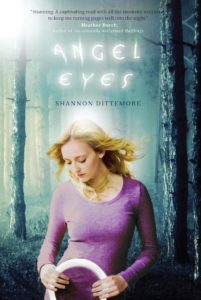 So, yeah. The Applebee’s lady set before me a challenge that led me back to young adult literature. Back to a world of fantasy and adventure. Of make-believe and heroics.
So, yeah. The Applebee’s lady set before me a challenge that led me back to young adult literature. Back to a world of fantasy and adventure. Of make-believe and heroics.
I suppose I owe her a thank you. Her angry words were a stepping stone—one of many—that led me to penning my first novel. A novel of speculation and adventure. Of angels with fiery swords, demons who use fear as a weapon, and a girl who can see it all. It’s a story I believe in and am excited to share.
So, thank you, Applebee’s lady. Thank you for sharing your opinions so brashly. For terrifying a room full of diners with your tale. Thank you for being a part of my journey. Thank you very much.
– – – – –
 Shannon Dittemore has an overactive imagination and a passion for truth. Her lifelong journey to combine the two is responsible for a stint at Portland Bible College, performances with local theater companies, and a focus on youth and young adult ministry. The daughter of one preacher and the wife of another, she spends her days imagining things unseen and chasing her two children around their home in Northern California. Angel Eyes is her first novel.
Shannon Dittemore has an overactive imagination and a passion for truth. Her lifelong journey to combine the two is responsible for a stint at Portland Bible College, performances with local theater companies, and a focus on youth and young adult ministry. The daughter of one preacher and the wife of another, she spends her days imagining things unseen and chasing her two children around their home in Northern California. Angel Eyes is her first novel.



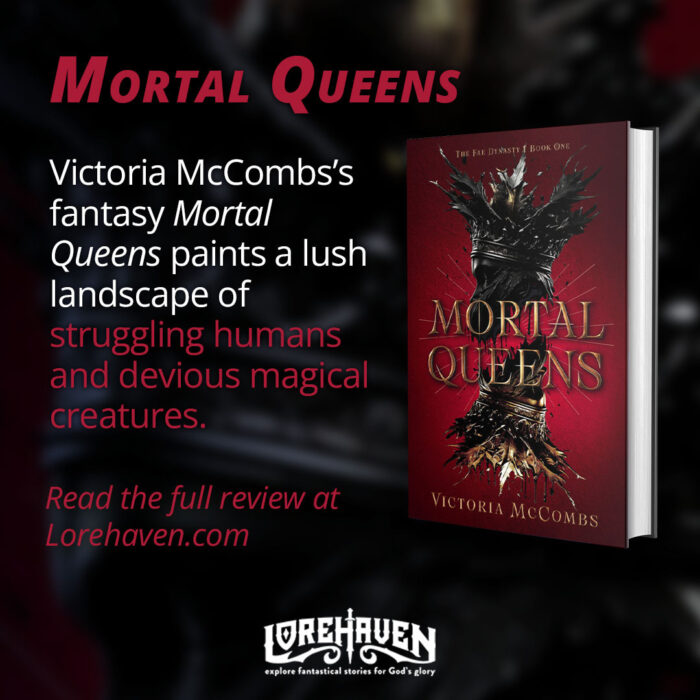





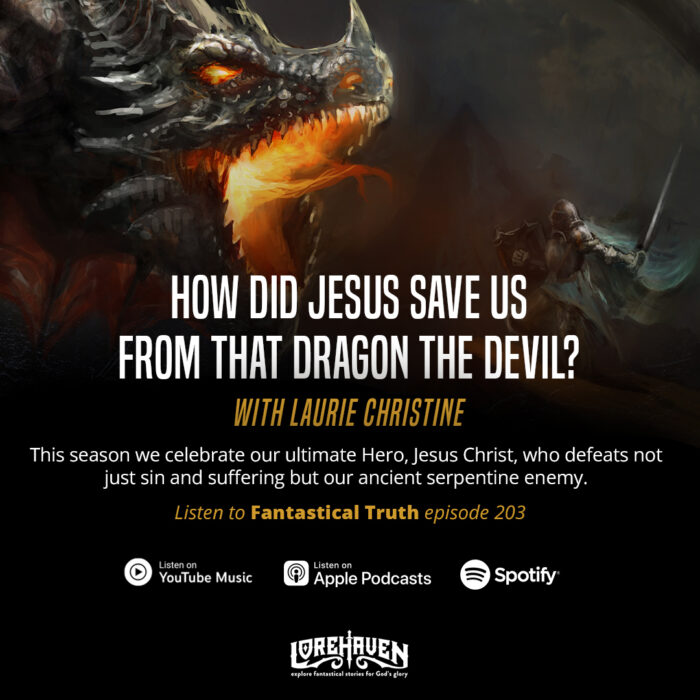





















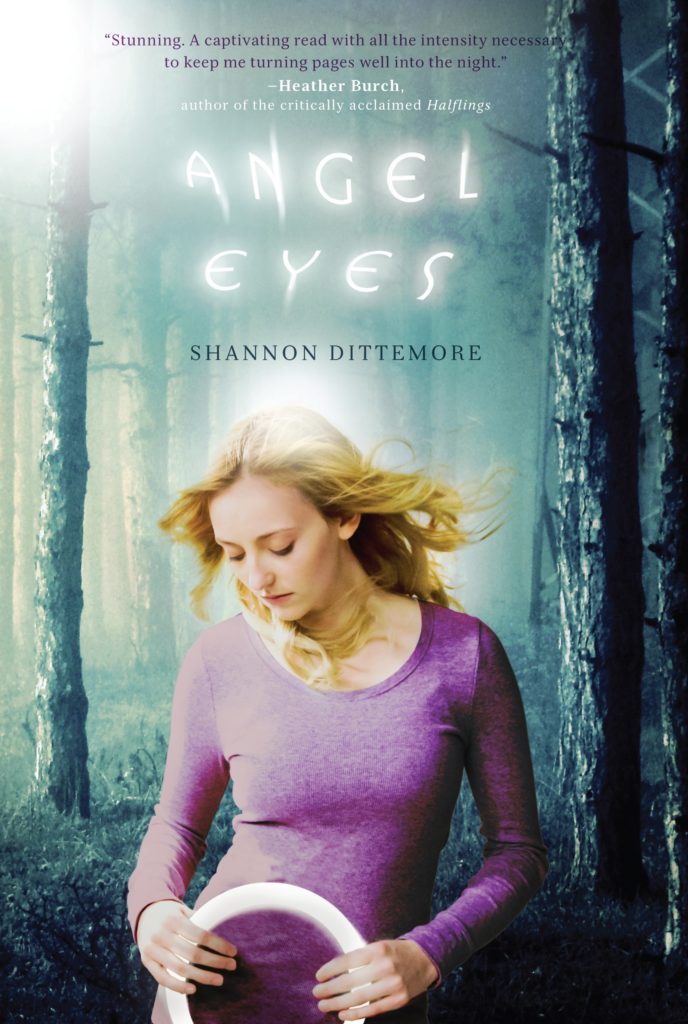

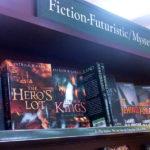

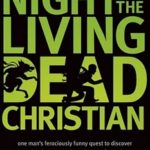


A great article and well said. I totally agree with this statement that you made: ‘But I do think we—as Christians—also need to have the wherewithal to discuss our opinions rationally and with some semblance of education.’
So often we don’t do that. We hear someone say you shouldn’t do or read or see ….. and without any further investigation of our own, we jump on the band wagon without knowing what we are even talking about. Just like your angry Applebee’s lady.
Your book sounds great and I just ordered it. Thanks so much!
Absolutely agreed! Ranting and raving about things in anger does not glorify Christ to those around us, no matter how “holy” we think we are in objecting to something. I used to be very anti-Harry-Potter, and said some very vehement things that were completely unfounded because I knew so little of the stories. I got over this extreme animosity eventually, but was still suspicious of the stories. Finally, I read them for myself this past year, to understand what it was I objected to all those years – and I loved them. 🙂
That is a scary lady.
This being the reason why I decided I’d hold my tongue on the Harry Potter issue. I’ve read some pretty bald-faced lies about the content of the Narnia books from people who are slamming them. I’m guessing there’s some of that going on with the Harry Potter conflict as well so I choose not to participate in the debate until I read them/watch the movies myself. I’m just too busy. XD
I am glad, though, that the debate sparked you to discover for yourself as well as enter the world of YA fantasy writing. Your book looks very interesting – stuck it on my amazon wishlist.
Shannon, I don’t think I’ll ever be able to thank you enough for sharing this article, and for writing your book (even though I’m only just reading it now!)
I went to a small private school that was a part of my church – Harry Potter was banned (among many other things) and we were told again & again how evil it was. Because it had magic and witches. But 9 year old me, coming from a family that encouraged me to question everything and doesn’t believe in censorship, couldn’t fathom why Harry Potter was bad, but Narnia & Lord of the Rings were praised and ENCOURAGED. It’s something I still don’t get. And it’s something that still continues now, and it breaks my heart to see young kids running around talking about how Harry Potter is a sin (say what? I never read that in the Gospel) who’ve never even touched the books or movies.
Yes, there are plenty of bad things out there. But I’m still waiting for SOMEONE to explain to me what makes Harry Potter evil, and Lord of the Rings good. Still waiting. I don’t think I’ll ever get an answer from them – because there isn’t one.
Then again, I know many who have tried to talk me out of reviewing books – warning me that there are some bad books out there with terrible content. Oh yes, I’m well aware of this. Hence why I choose to review books. Someone out there needs to review them to figure out what’s in them. And yes, I’m probably more liberal in what I choose to accept than most others. But I’ve never understood this vehemence against make-believe.
But I am oh-so grateful for people like you, who are firm in their beliefs, yet also choose to write fiction that involves some magical imagination.
I wholeheartedly agree. I fully commend parents who monitor their children’s reading, as long as they’ve read the book first. If you as a parent don’t want your child reading Harry Potter, that’s fine, but make sure you’ve made an informed decision.
There are things out there I wouldn’t want my children reading…yet, but under no circumstances will I tell another parent what’s right or wrong for his or her child. I expect the same.
That’s the reason this debate matters so much. What is (supposedly) so sinful, so evil, so impossibly without redemption, so terrible and frightening and un-Godly, that it should drive Christians themselves to practice the methods of Satan, the father of lies, by lying?
The answer, of course, is nothing. God’s people should not lie, about non-Christians, about fiction, and about anything else.
And yet professing Christians lie all the time about Harry Potter.
At best, most repeat others’ lies — but still, some professing Christian started it.
I daresay that debate is the reason why many of us are here. We saw the contrast between others’ practice of sin, and the wonder that God-honoring story can give us. The light appeared even brighter, when contrasted with the darkness.
…. Which, of course, is itself one of the reasons why any good story glorified God.
For more reading about graciously challenging Harry Potter critics’ own pagan myths, consider Harry Potter and How We Learn to Discern (itself based on a longer series).
I once had a friend whose teenaged son expressed interest in Philip Pullman’s Golden Compass trilogy. That’s one set of fantasy books that honestly fascinated me, but also left me feeling sick to my stomach. I ultimately decided for myself that it was the Holy Spirit convicting me not to finish the series. So when my friend told me about her son, I expressed my concern, and urged her to read it with him. Maybe it’s my training as a librarian, but I believe we do more damage telling kids not to read something, than teaching them how to read and discern for themselves. My friend and her son had a lot of good discussions about faith and fantasy over the course of their Pullman journey.
I’ve read His Dark Materials. It was an interesting and thought-provoking series but certainly the antithesis of Paradise Lost. The first book was very good, the second was quite good also, but the third book was downright hateful towards God and Christians. The worldview is much more objectionable than anything in Harry Potter, or even Twilight and yet we didn’t hear anywhere near the “fan-fare” from Christians about the two non-HP properties.
Great blog post, Shannon. It’s interesting how God leads us to learn new things.
I read those, myself, and was rather disappointed. It was very anti-something, and the ground of the story changed to something much darker in the third book. Didn’t like them at all.
Thank you all for your kind words. Your input is inspiring and I’m so glad I get to serve God with you all. God bless and thanks to Spec Faith for having me!
Interesting. It was Harry Potter that made me really look at fantasy and Christianity. My husband and I were in youth ministry and our teens were asking us about HP. We decided we should read the books ourselves and see what the hoopla was about. I compared what I read to what the Bible said about witchcraft and magic (I took notes and everything). The conclusion I came to is the magic in Harry Potter was not the type the Bible condemned. It is a neutral thing, something people are born with (genetics).
This opened up a whole new world for me. Shortly after, I began writing. So thank you Harry Potter 🙂
Morgan, that’s exactly the conclusion I came to as a teen, when my parents condemned books with magic and I enjoyed them. I loved God and loved the truth, but I saw a big difference between the witchcraft that the Bible actually condemned and the kinds of magic in many fantasy books.
Many times in fantasy, the magic is something inherent in the person. It’s a talent. It’s part of them. They are not engaging the forces of Satan on their behalf or calling up demons. To me, that’s different. That’s like a metaphor for the spiritual gifts and talents that God has placed in us, in real life.
And even the stories where “black magic” occurs, where demons are being summoned and witches are truly on Satan’s side… Many times it is pretty clear in the story that the dark magic is the “bad” stuff, that it destroys those who use it. When evil is shown to be evil in the story, and it isn’t glorifying evil or encouraging evil, then that is more a reflection of real life.
There’s way more to judging a story than simply “it has magic, toss it”. Thanks for the post and the chance for discussion!
[…] If you frequent Speculative Faith, Shannon’s name may well sound familiar. Besides being an occasional commenter there, she wrote last Friday’s guest post. […]